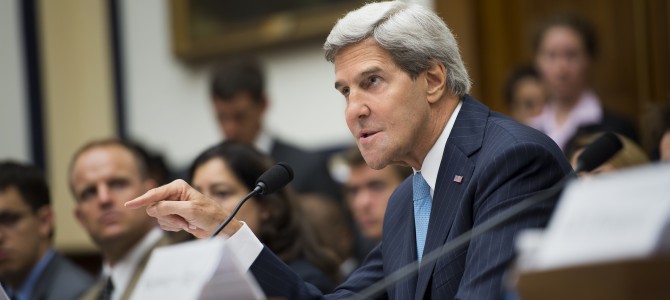
Over the past few weeks, a broad debate about the reason for opposition to Syria strikes from Congress, particularly Congressional Republicans, has thrown around terms like isolationist and cited the rise of libertarian politicians as a justification for the less hawkish approach of elected officials. There is some truth to that, yes – the vast majority of the House Republican caucus was elected after 2006, and the crisis of their time was financial, not terrorist in nature. There is also some truth to Steve Hayes’ contention that it is lack of faith in President Obama’s capability to lead that is driving opposition to a strike more than a rise on non-interventionist leanings. This is part of the story, but it’s not the whole thing – because what’s really going on is as much about the difference between the dominance of Washington elites and the technology-fueled eradication of that dominance today.
In the election of 2004, there was no YouTube. There was no Twitter. Facebook was confined to Harvard. There was no social media to speak of. The viewpoints of the elite – elected officials, diplomats, experts, former bureaucrats ensconced in think tanks – made up the overwhelming bulk of the running conversation about national security and foreign policy. Because the American people are far more engaged on domestic policy than foreign, these debates were held in a Beltway vacuum, where reactions from constituents – aside from a few engaged activist groups – were delayed until Congress recessed. Ideas could percolate to the point of being applied as policy before there was any real reaction from the people outside the beltway.
Today, the base of the right and the left are unconvinced by any of the arguments for U.S. involvement in Syria, and as soon as they started making their voices heard, more than one politician who had given lip service to military intervention changed their tune. Just as with the politics of sequestration, the old assumptions don’t apply any more. Today, the president is going to attempt to convince the American people that they should be supportive of his effort. He might expect more success if his poll rating on foreign policy hadn’t just reached an all-time low. The American people do not trust their leaders, any of them – and unlike in the past, they can make their voices heard.
Now, the Senate vote has been delayed. And the Russians may be offering a path for Obama to get out of this jam – Syria has reportedly accepted Russia’s proposal that they put their chemical weapons under international control. But Jeffery Goldberg has a series of worthy questions about what that actually means.
“Why are the Russians seemingly so ready to aid Kerry and President Barack Obama by helping relieve Syria of its chemical weapons? Since when is Russia interested in helping the U.S. out of a jam, even if it burnishes its own reputation in the process? Do these early signs that Russia might be interested in making a deal to avert an attack prove that threatening to attack was the right thing to do? Who is making American policy on Syria? Kerry or Obama? Why would Assad give up his chemical weapons? He saw what happened when Libya’s late dictator Muammar Qaddafi gave up his weapons of mass destruction program, which is to say, he lost some of his deterrent power. How do you possibly verify that Assad has given up all of his chemical weapons? The Syrian regime possesses hundreds of tons of these munitions.”
Israel is skeptical as well. I expect that Americans will be, too.









